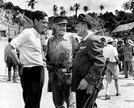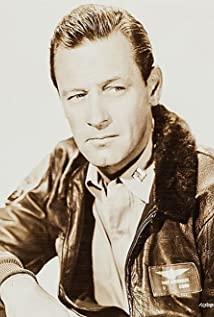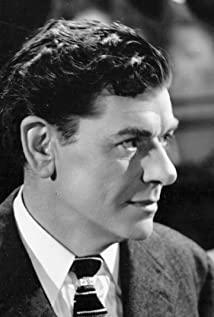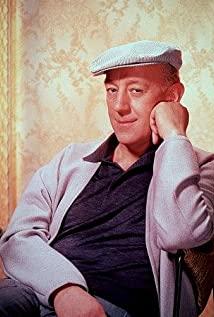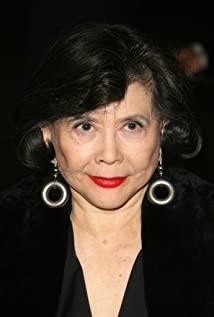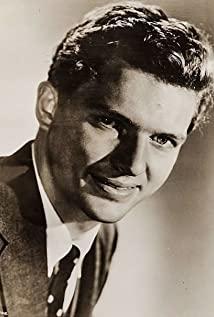This movie carries a lot of things, which can be interpreted from some angles.
1. What is the meaning of life?
It's a complex question that all the brightest minds have spent their entire lives thinking about. For those in war, the meaning of their lives is to fight, kill, and win. What about captives? No one can answer this question. The prisoners in the movie are trying to find the meaning of their life. The colonel found it, and that is to build a good bridge. This bridge represents these prisoners' pursuit of life and their search for their own value, which is their spirit. pillar. For us ordinary people, some people pursue career success, some people pursue family happiness, and some people have other pursuits. No matter what kind of people, they will have some persistence or even paranoia about their own pursuits. Paranoia is needed to achieve goals, but the comedy and tragic nature of life often comes from paranoia.
2. How should one be brave?
The colonel maintained his dignity as a soldier with his bravery and perseverance. This is the habit he cultivated in a civilized country to value his own dignity. , which is admirable. A soldier, from the moment he becomes a soldier, his life does not belong to himself, but to the country and to the war. Therefore, the heroism of the colonel is part of his professional ethics as a soldier.
In fact, we ordinary people should also learn to be brave.
3. How do people stick to
principles? What principles is the Colonel sticking to? It was the principle of officers not participating in labor, which was stipulated by the law of war, and he fully implemented it, and the Japanese were unwilling to do so, so the colonel chose to confront. At this time, he is using the lives of many people to fight against the Japanese. What he is defending is not the lives of more people, but the dignity of international law.
The principle that the colonel must adhere to is the law of war, which stipulates the rights and interests of prisoners. The colonel surrendered because he didn't want all his soldiers to die if he couldn't win. Therefore, he used his young body to resist the scorching heat and the bottomless persecution of the Japanese. At this time, his confrontation with the Japanese has become a confrontation of values.
In the eyes of ordinary people, if the officers went to work, the Japanese would not persecute them, and they would be able to live as captives in peace and stability. But the colonel did not back down. He was defending the law with his life. of "sacrificing one's life".
4. Different cultures have different understandings of war and the law of war.
At different stages of Chinese history, people have different understandings of war. In the beginning, the war was very orderly, and even the gathering after the nobles agreed on the time and place was a bit like a military parade, but with the fierce battles between countries in the Spring and Autumn Period and the Warring States Period, the war gradually evolved into a "tricky" knowledge. Are there rules for war? Yes, but very little. For example, there are many incidents of killing and reducing diseases in Chinese history, which shows that people do not believe in the laws of war, and people only believe that they can do whatever they can to win.
Western countries have gradually developed war-related laws, but can they be fully implemented? I'm afraid it's also difficult, and the twentieth century POW camps were also full of crazy carnage.
The Japanese POW camps in the movie are not too bad for POWs on the surface, but they still take some extreme measures to manage them.
War and peace are a pair of contradictions. It is also a pair of contradictions to do anything to win and maintain humanity in war. It is precisely because of contradictions that it is never possible to balance. Inhumane measures, but as everyone knows, it is very difficult to do.
Hills, who successfully escaped from the Japanese prisoner of war camp in the movie, is very representative. He has no pursuit and no principles. He has seen too much about the Japanese killing prisoners, so he must escape. He succeeded, thanks to wit and luck, and an instinct to survive.
5. The Fate of Hills
After Hills escapes from the POW camp, the story turns into a two-fold development: at one end, the British in the POW camp begin to gradually repair the bridge under the leadership of the colonel; at the other end, Hills is forced to join the bombing of the bridge. The team embarked on a journey to blow up the bridge. Hills finally escaped from the prisoner of war camp, only to return fatefully. In fact, after joining the team, this character became ordinary and lost its luster, leaving only one protagonist in this movie that originally had two protagonists. This is the problem of the screenwriter and the problem of the actors.
6. The Colonel's destiny
The colonel's destiny is that this bridge begins with him and ends with him.
We know that the colonel regarded the bridge as the greatest achievement in his life, so he took the initiative to build the bridge, so what about blowing up the bridge? I've watched it many times and I'm still not sure whether he wants to blow up the bridge or not. He has come to understand that his position is British and should blow up the bridge, but he is still not sure if he wants to blow up the bridge. The most remarkable part of the character setting in the film is here. The contradiction of the colonel is not that he did not understand his position, but the contradiction after he understands his position. His contradiction lies in the contradiction between his position and the meaning of his life. This contradiction cannot be reconciled, so he has no choice but to let God decide. The director chose a result acceptable to the audience, and let the colonel touch the fuze with his own body and destroy his own efforts. But I have always doubted whether the director wanted to do this, because if he wanted to highlight this contradiction and create a dramatic effect, the best result should be that all the squads were sacrificed and the bridge could not be bombed, and the colonel was killed by the squad, because of such a tragedy The effect is to highlight the contradiction. It's a pity that the director didn't have such courage. Reminds me of another movie "Lust, Caution". The director had the courage. In the end, Wang Jiazhi chose love and betrayed his team, but Mr. Yi did not choose love and executed them all without hesitation. A bad ending, but clearly a lot stronger.
7. Proud
Japanese The image of the Japanese is much fuller than that of Hills, but unfortunately not sublimated at the end. How to sublime it? Suicide by incision. When his self-esteem went from high to low in front of the British, and at the end there was nothing left, suicide was the only way for him to maintain his dignity. This proud man would not allow himself to live in the world, but after he had done a good job When he was about to die, the team ended his life. Is this also fate?
8. The collapse of the bridge, the collapse of the
bridge is a symbol, it symbolizes that the goal of the Japanese has not been completed, and it also symbolizes that everyone's ideals are all shattered.
Mr. Jin Yong's novel "Eight Dragons" was highly praised. Some people commented that the people in this book "no one is innocent, and all sentient beings are sinful".
The same is true for the people in this film, who can’t get what they want. The colonel was about to build the bridge, but it was bombed down as soon as it was built. It was his compatriots who blew up the bridge, and the first train on the bridge was carrying British prisoners and wounded. Hills wanted to live a peaceful life, but he set foot on the road of no return by blowing up the bridge. The Japanese wanted to be decent and wanted to make the British bow their heads, but the result could only be that he lowered his head to the dust, and even he failed to commit suicide.
9. That piece of music The piece of music
in "The Bridge on the River Kwai" is too famous, of course, this piece of music is not original, but composed by British composer Alford in 1914. The prisoners wore ragged clothes, walked neatly, and whistled cheerfully. This picture is a little sad, but it suddenly gave birth to strength, like a sunset at the end of Hong Kong movies in those years, or a rainbow, It was as if the protagonist was finally about to set off on a new journey. At that moment, they were not prisoners, they were free people, and only free people could make such a voice.
10. Those women at war
The beauties in the military base are a necessary embellishment for the movie, giving the audience a rest after watching a lot of killings, but it's a little cliché.
What makes people unforgettable are those Burmese girls who peacefully embarked on the journey of life and death, the mutual support with British comrades in the journey, the restrained joyful voice, the gentle eyes, and the tough quality are the most beautiful parts of the whole movie. .
11. Another bridge
The Yugoslav film "Bridge" is more famous in China, and I learned later that the Yugoslav film was later than this "Bridge on the River Kwai". Obviously, there are a lot of similarities between the two classic films that are both bombing bridges, and there may even be some references, but the focus is different. Yugoslav films are more exciting, faster and more modern, while American films are very academic. , with a strong focus on dramatic structure. In addition, the emotions between the people in the Yugoslav films at the end moved me even more. The phrase "forget it" almost made me cry.
Therefore, Xianxian would solemnly recommend this film. The only downside is that the movie is a little long.
View more about The Bridge on the River Kwai reviews





